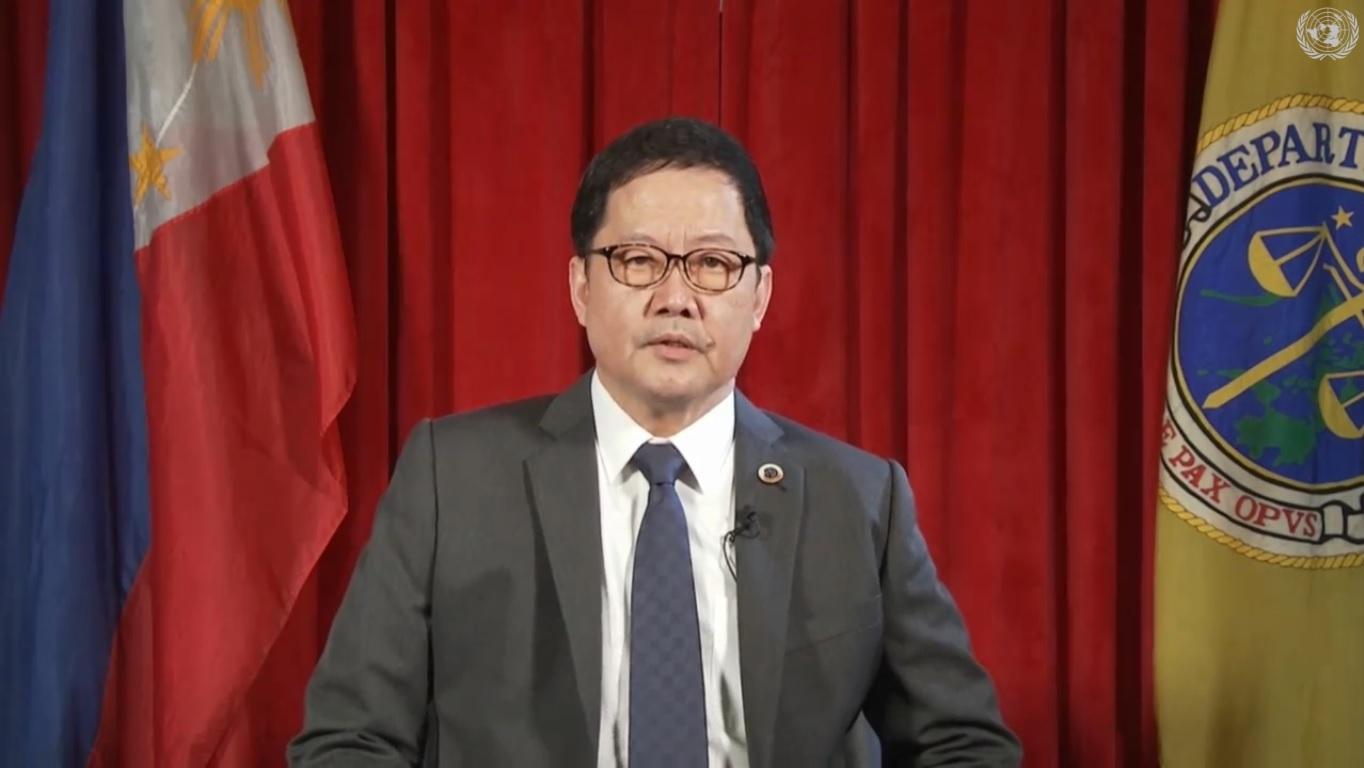Petitioners have the right to appeal SC anti-terror law decision –DOJ

It is the right of petitioners to file a motion for reconsideration on the provisions of the controversial Anti-Terrorism Act of 2020, the Department of Justice said Friday.
“It is a litigant’s statutory right to seek a reconsideration of any judgment that is adverse to him/her. That is the essence of our judicial system,” Justice Secretary Menardo Guevarra said in a message to reporters.
Guevarra issued the remark after petitioners who previously challenged the measure decided to push through with the filing of the motion against provisions on the extended detention and the powers of the Anti-Terrorism Council.
On Thursday, the Supreme Court declared as unconstitutional a qualifier in Section 4 and the second paragraph of Section 25 of Republic Act 11479.
Section 4 of the law states that terrorism shall not include advocacy, protest, dissent, stoppage of work, industrial or mass action, and other similar exercises of civil and political rights.
However, there is a qualifier stating dissent is not considered terrorism, provided that it is not intended to cause death or serious physical harm to a person, to endanger a person's life, or to create a serious risk to public safety.
This qualifier was voided by the SC for being "overbroad and violative of freedom of expression” with a vote of 12-3.
At the Laging Handa briefing, Justice Undersecretary Adrian Sugay said removing the qualifier would affect other provisions in the measure, such as the up-to 24-day warrantless detention for suspected terrorists.
“[L]ahat yan talagang buong batas ay maapektuhan ng paglilinaw na ‘yan ng Korte Suprema, including ‘yang provision sa detention without warrant,” Sugay said.
(The whole law will be affected by what the Supreme Court did, including the provision on detention without warrant.)
“So sa akin ang maaresto lang naman talaga ‘yung malinaw na malinaw na terorista batay sa sinasabi ng batas,” he added.
(For me, the only ones who could be arrested are terrorists based on the law.)
When questioned about the amount of power given to the Anti-Terrorism Council to identify terrorists, Sugay said this was only the “initial determination.”
“Pero lahat naman ‘yan, pwede naman kwestyonin sa husgado, pwede idulong sa korte. Kung tingin ng iba hindi tama ‘yung pagkaka-identify sa kanila o ‘yung pagkaka-aresto sa kanila, nandyan ‘yung korte,” he said.
(But these can be questioned, you can bring this to court. If you think the identification or the arrest is wrong, you can bring it to court.)
“Kunyari, naaresto ka, kailangan niyan i-report agad ‘yung pinakamalapit na husgado within a very short period of time. So may mga ganong safeguards. Kailangan din sabihan ‘yung Commission on Human RIghts,” he added.
(For example, you are arrested, this needs to be immediately reported to the nearest court within a very short time. So there are these kinds of safeguards. We also need to inform the CHR.)
Meanwhile, according to Guevarra, there is no need to revise the implementing rules and regulations of the measure.
“Assuming, however, that the ruling on the invalidated provisions would remain, the corresponding provisions in the IRR will automatically cease to exist too, without any action on the part of the ATC,” he said. — DVM, GMA News




